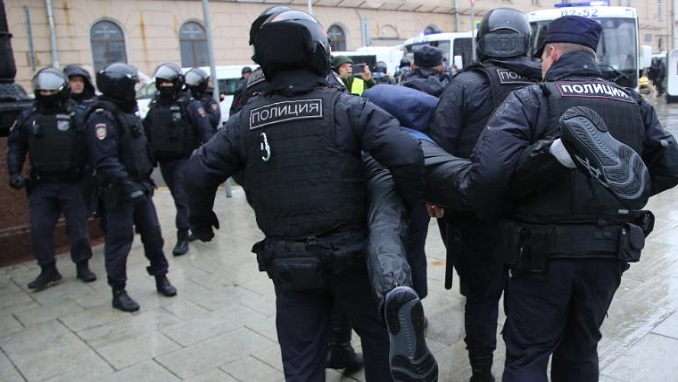Since Moscow pushed to reinforce its offensive in Ukraine by calling up hundreds of thousands of reserve troops to fight, there is widespread confusion and anger in Russia where such mobilization hasn’t been announced since World War II.
There had been anti-conscription protests staged across Russia in recent days among the confusion of who should go and who shouldn’t go for mobilization.
According to the independent protest monitoring group OVD-Info, more than 2,350 people have been detained across Russia since the announcement of the partial mobilization, but the number of those detained may be higher.
OVD-Info said that at least 128 people were detained on Sunday in five cities, including Yakutsk, Irkutsk, Reftinsky, Kotlas, and Makhachkala, the capital of the predominantly Muslim region of Dagestan.
Protests are most heated in some ethnic minority regions in Russia, including Dagestan, where activist groups claim minorities are being disproportionately targeted for conscription in the war.
Media report that at least 100 people were arrested in Dagestan for protesting against the partial mobilization order.
Since Putin announced reservists’ mobilization last week, flights to leave Russia have sold out in an apparent exodus of people seeking to evade being conscripted to fight in Ukraine.
That prompted Sergei Tsekov, a member of Russia’s Federation Council, the upper house of parliament, to demand men of fighting age be barred from exiting the country and traveling abroad in the current situation.
After hundreds of men attempted to flee Russia by crossing the border, Moscow said that decisions are yet to be made on whether to close Russia’s borders amid long queues of vehicles waiting to leave the country.
Meanwhile, amid increasing opposition to the Russian invasion of Ukraine, Russian President Vladimir Putin has signed several amendments to the country’s criminal code, making more severe wartime punishments for various offenses.
